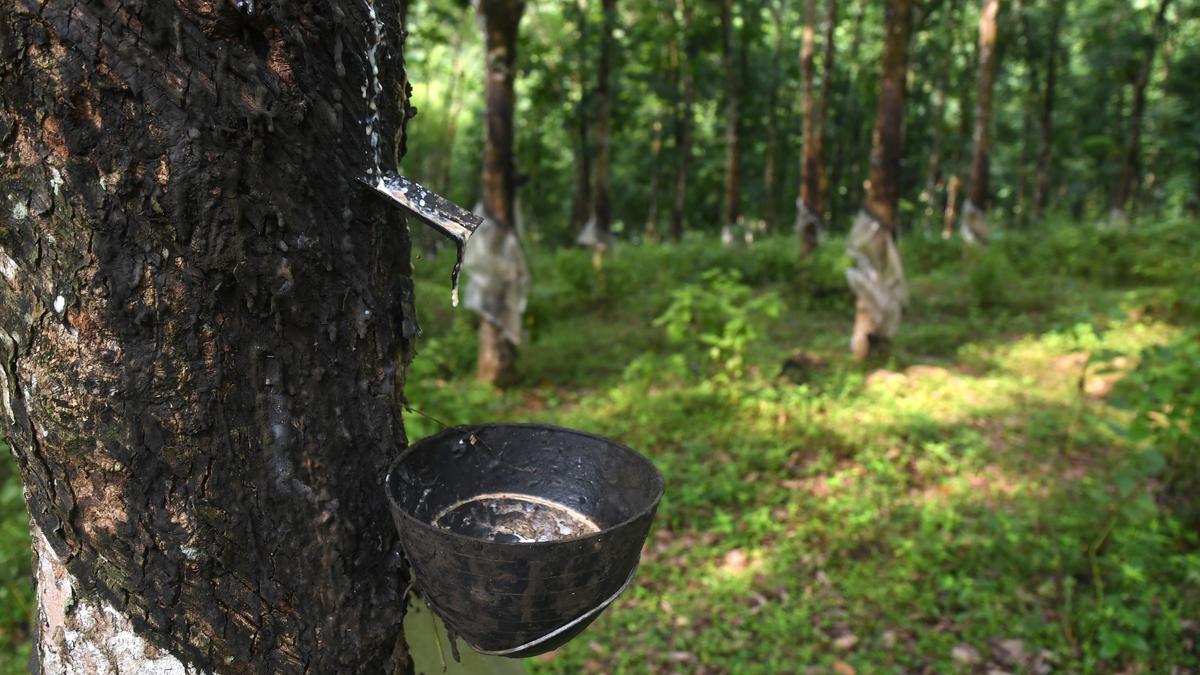
Delay in approvals hits rubber plantations in Tamil Nadu
The Hindu
Tamil Nadu planters face delays in replanting rubber plantations due to lengthy clearance process from district-level Forest Committees. This results in losses and prevents small holders from selling land. PAT data shows rubber production in TN is worth ₹400 crores annually, with 105 tonnes exported. Replanting 2-3% of trees yearly is necessary for reasonable production, but planters must get permission from district committee, taking 1-2 yrs. PAT requests district admin to dispose of applications in reasonable time frame.
For the rubber plantations in Tamil Nadu, most of which are in Kanniyakumari district, getting permissions for replanting takes several months resulting in losses.
Planters Association of Tamil Nadu (PAT) chairman T.J. Varghese Vaidyan said recently, at the annual meeting of the Association, that developed and cultivated areas in plantations were brought under Tamil Nadu Preservation of Private Forests Act in 1979. So, transfer or alienation of immovable property requires clearance from the district-level Forest Committees and this takes several months. It not only creates inconveniences but also results in delay in transaction of properties.
The planters with small holdings are unable to sell 10 or 15 cents because the land is classified as forest land, he added.
Data available with PAT shows that rubber is grown on 26,268 ha in Tamil Nadu and the annual production (worth almost ₹400 crores) is 24,163 tonnes. Of this, nearly 105 tonnes of rubber are exported.
S. Ramachandran, director of Vaikundam Plantations, said that less than one fifth of the total area under rubber in Tamil Nadu is with large growers. The remaining land is with the small growers, who own less than 50 acres each. Rubber tapping starts from the seventh year of the tree and goes on till the tree is 21 - 30 years. “We replant 2 % to 3 % of the trees every year in a cycle to have fairly reasonable production,” he said. But, the planters should get permission from the district committee to start replanting. “We do get the approvals. But, it takes one to two years and so replanting gets delayed,” he says.
“We request that the district administrations should dispose of such statutory applications within a reasonable time frame,” said Mr. Vaidyan.













